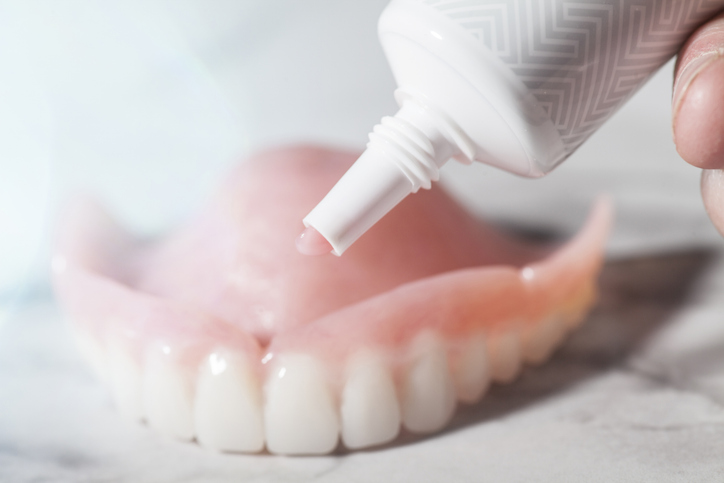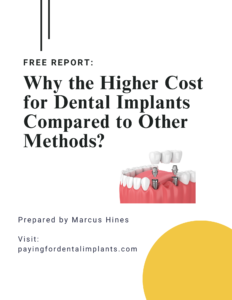Physical Address
12245 Cypress Spring Road, Clarksburg, MD 20871
Physical Address
12245 Cypress Spring Road, Clarksburg, MD 20871

Last updated on May 16th, 2025 at 09:42 pm
If you are like 36-million Americans who are missing all of their teeth and wear dentures, you may not understand the the drawbacks of long-term denture use. Dentures are a fast and cost-effective method for replacing an entire set of teeth. However, there are several hidden drawbacks to long-term denture use that should always be considered. In this article we’ll consider six of the more common long-term issues that may come with wearing dentures.
If you have worn a denture for several years, you undoubtedly know that dentures become loose over time. This is a chief complaint of denture wearers. Your denture may have fit like a glove when you first received it, but it can become so loose over time that you begin to question if it’s even the original denture you received a few years ago.
Why do dentures become loose? There is a simple explanation. The shape of your gums and jawbone changes over time, after tooth loss. Most of our skeletal (boney) system requires stimulation throughout our bodies in order to maintain its natural shape and form.
Without bone stimulation, the bone atrophies. For instance, we naturally receive this stimulation in our legs by walking and running. The bones in our arms are stimulated by lifting a book, a bag of groceries or opening a car door.
The jawbone receives natural stimulation when we chew. However, either a natural tooth root or an artificial tooth root (dental implant) must be present for the jawbone to receive stimulation. Therefore, chewing with a traditional removable denture is incapable of stimulating the jawbone.
Now the denture is loose, in part, because the jawbone has shrunk over time. What do you do now? To combat the issue of a loose denture, many people turn to denture adhesives, also known as denture glue.
Denture glue can be very messy and inconvenient to apply. Many denture wearers complain that they often have to reapply denture glue throughout the day. It so happens that it is never at the right time.
Imagine being at work, or out to dinner and the denture glue you applied this morning is no longer keeping your denture in place. Now you’re faced with finding a public restroom to clean off the worn denture glue before reapplying more. This is what many long-term denture wearers routinely deal with.
Additionally, some adhesives have an unpleasant taste or can leave residue in your mouth. This further diminishing the experience of wearing dentures.
While dentures can help restore your ability to chew, they are not as effective as natural teeth. Many denture wearers find it difficult to chew certain foods. Harder items like nuts, raw vegetables and fruits are often avoided by denture wears because some find it too difficult to eat with dentures.
This limitation can affect your diet, making it harder to enjoy a variety of foods. Potentially this can lead to nutritional deficiencies. It’s a very big problem that many long-term denture wearers deal with.
The 2011 Dental Health Behaviors, Dentition, and Mortality in the Elderly study found that “[death] increased with increasing number of missing teeth. Edentulous (missing all teeth) individuals, including denture wearers, had a 30% higher risk of death compared with those with 20 or more teeth.”
The same study explained that “tooth loss reduces [chewing] capacity, which can influence food selection, nutritional status, and general health.” In simpler terms, if you can’t chew nutrient rich food, your overall health is likely to suffer as a consequence.
Wearing dentures long-term can impact your self-esteem in a very big way. The fear of dentures slipping or making noise while speaking or eating can lead to self-consciousness. Anxiety in social situations eventually set in.
In a separate post, we shared Ronald’s story. After wearing dentures for several years, they no longer fit. Ronald’s anxiety while eating and socializing became so great that he no longer wanted to participate in family gatherings that he once looked forward to with great anticipation. Once he figured out a way to pay for his dental implants, his confidence was restored.
Since wearing dentures can affect your overall confidence and sense of self-worth, we recommend developing a long-term strategy to replace your dentures with a set of teeth that can be supported by dental implants.
Dental implant recipients like Ryan, a 41-year-old craftsman, found that his self confidence had instantly been restored once he received his upper and lower full mouth dental implant teeth.
Food entrapment is another common problem that intensifies with long-term use of traditional dentures. Small particles of food can easily get trapped between a denture and your gums.
If you are enjoying a meal at home, this tends to be less of a problem. You can easily remove your denture, in private, clear the irritating particles, and place your denture back in your mouth.
But when you are in public and attempting to enjoy a nice meal, food entrapment can place you in a very compromising position. Unfortunately, this can lead to lasting discomfort. Food entrapment can also increases the risk of infections and bad breath.
As a denture becomes increasingly loose over its long-term use, the need to debride the denture of food particles becomes more frequent. As time consuming as it can seem, regularly cleaning your denture and mouth is essential regardless of the inconvenience.
If you wear dentures, it is important to manage their use well in order to lessen the potential problems. A few helpful hints include:
It is not unusual for dentures wearers to only visit the dentist when problems occur. Yet regular visits will allow the dentist to assess your gums and dentures, allowing them to make important adjustments or relines so that your dentures fit properly. Your dentist can best determine the frequency of your visits.
Description for this block. Use this space for describing you- Assuming your gums have long healed since your teeth were extracted, the rule of thumb is that you not to sleep in your dentures. Sleeping in a denture can cause your gums to be inflamed, lead to painful infections, and contribute to jawbone loss. Always follow your dentist’s advise.
Your dentures should be soaked overnight in denture cleanser. This helps kill bacteria and keeps your denture moist. Clean your dentures thoroughly in the morning before placing them in your mouth. A soft-bristled brush or special denture-cleaning brush is recommended. Do not use household cleaners, bleach or toothpaste to clean your dentures since they can be too abrasive.
Removable dentures offer a fast and practical solution to several missing teeth. However, their are several drawbacks to long-term denture use. From becoming loose and requiring messy adhesives, to causing problems with chewing and contributing to bone loss, these issues can significantly impact your quality of life.
Additionally, the potential loss of self-confidence and the hassle of food entrapment are important considerations. If you are considering dentures or currently wear dentures, it’s essential to weigh these factors and discuss alternative options with your dentist.
Dental implants offer a stable set of teeth that look, feel and function closest to natural teeth. Having a discussion with your dentist could lead to a better solution for your overall health and well-being.
Sources:

This will close in 0 seconds
This will close in 0 seconds